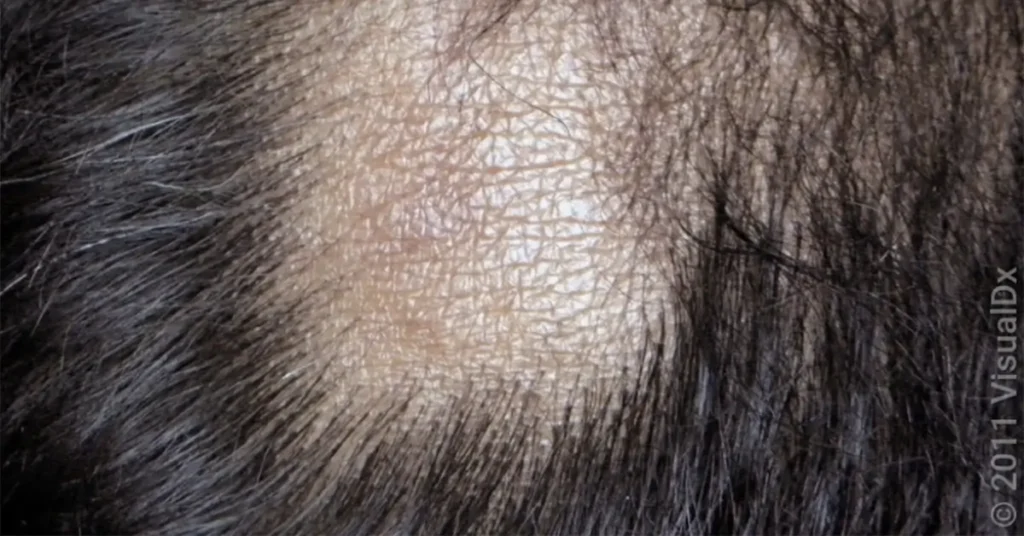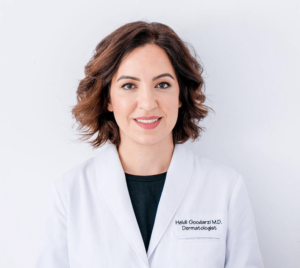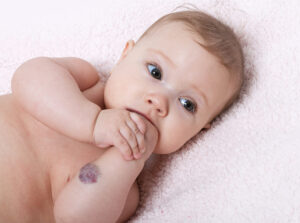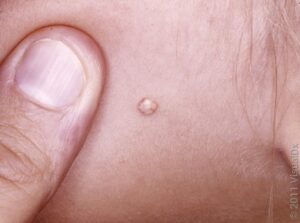Alopecia refers broadly to the phenomenon of losing hair. Dermatologists diagnose and treat many, many types of hair loss. One common type in children is a patchy hair loss called alopecia areata.
Although we do not know the exact cause of alopecia areata, we understand the mechanism by which it happens; one’s immune system accidentally attacks the hair follicles and makes them fall off. This leads to patchy bald areas on the scalp or other body parts. The good news, however, is that the immune system does not kill the hair follicles, and therefore there is always a chase of hair growing back. This differs from many other types of hair loss, where hair damage is permanent, and hair will never grow back.
Alopecia areata is easy for a pediatric dermatologist to diagnose by examining a child’s scalp. No specific test or procedure is needed for diagnosis. There are also many available treatments your child’s dermatologist can offer. This ranges from topical medications (steroids and other non-steroidal creams), small injections into the skin of the scalp, or topical or oral medications that modulate the immune system. The newer alopecia areata medications (JAK inhibitors) have changed the landscape of what is possible for these children.
It is important to note that regardless of what treatment you use in Alopecia areata, it only treats the hair loss patches that are present now. No treatment is currently available to alter the course of the disease and prevent future potential flares. Another rare but important health concern is the association of alopecia areata with other diseases. At times your pediatric dermatologist may consider ordering blood work to make sure there is no auto-immune thyroid disease, diabetes, or blood deficiency.
Whether alopecia areata is only a few patches on the scalp or causes complete hair loss on the scalp (alopecia totalis), or involves the entire body hair (alopecia universalis), effective treatments are available. However, the psychosocial impact of the disease may take a toll on any child or adult. It is crucial to have an open and honest conversation with your child about the disease, to teach them to describe their condition, and to be able to inform others about the nature of their hair loss.
Unfortunately, at times the psychosocial effects of this condition lead to anxiety, depression, or even suicidal ideation. Your dermatologist will recommend a counselor, psychologist, or psychiatrist to get involved in the care of your child.
There are also many resources available to families to learn more about alopecia areata, which can be very helpful:
National Alopecia Areata Foundation: www.naaf.org
The Children Alopecia Project: www.childrensalopeciaproject.org
Please complete our contact form or contact Children’s Dermatology at (949) 679-1990 to arrange a consultation with Dr. Heidi. We look forward to responding to your queries and assisting in accurately identifying the issues and establishing the most suitable treatment plan for your loved ones.
Image Credit: VisualDX






